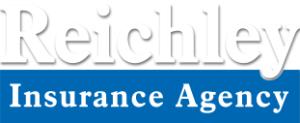What Is Your Value Proposition?
 Most business owners can see an insurance agent coming a mile away. Agents, that is not a good thing. Insurance buyers have created a defense mechanism that makes it hard for agents get through. The primary reason for this is agents are far too often just interested in selling a product, not providing a solution. Business owners don’t want to feel like they are a number or that the agent is only there to make a sale. Business owners want to be understood, they want to be educated, supported, and they want a trusted advisor.
Most business owners can see an insurance agent coming a mile away. Agents, that is not a good thing. Insurance buyers have created a defense mechanism that makes it hard for agents get through. The primary reason for this is agents are far too often just interested in selling a product, not providing a solution. Business owners don’t want to feel like they are a number or that the agent is only there to make a sale. Business owners want to be understood, they want to be educated, supported, and they want a trusted advisor.
Here is what has become the “industries” value proposition
- Save 10 percent 15 minute or less
- It is so easy, even a caveman can do it
- You name your price
- It is so simple a lizard can guide you
- We have a special gun, and it knows how to save you money
A value proposition is what makes your agency unique and explains why someone would want to do business with you.
One way an agent can help is to develop a value proposition. Your value proposition should go beyond the product pitch and go deeper into the why and how you are an agent. When you build your unique value proposition, you need to start with answering a few questions
- Who are your clients?
- How do you help your clients?
- What problems do you solve?
- Why are you different than other agents?
- What services other than insurance do you offer?
- Why would anyone do business with you?
These are not value propositions
- We have been in business for 50 years
- We are a third generation agency
- We have more markets
- We are local
Here is our value proposition
- We listen to your needs
- We place people before policies
- Insurance is a promise, not a product
- We would rather educate you than sell you
- There is no one size fits all insurance product
The benefits of redefining your value proposition are that clients will see it and it will enable you to build longer more valued relationships.
Reichley insurance believes insurance is more than a transaction. Insurance involves a trusted relationship built on a promise to put people before policies. Our promise is to listen to you, identify your risks and provide solutions. Every employee has the heart of a teacher. Connect with us to experience The Reichley difference.
Perk Reichley and Bob Lilly
#insurance #riskmanagement #customerservice #busienssinsurance #selling #educating












